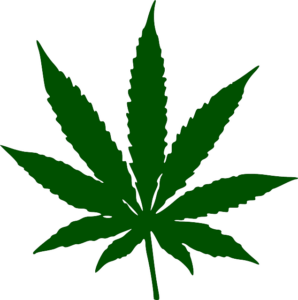
THCA flower, a non-psychoactive compound from the Cannabis sativa plant, is emerging as a potential aid for cognitive enhancement and mental clarity. Unlike its psychoactive counterpart, THC, THCA interacts with the endocannabinoid system to influence mood and cognitive function without altering one's state of mind. Preliminary research suggests that THCA may offer neuroprotective effects and enhance focus and mental acuity, with user reports indicating improved clarity without psychoactive side effects. However, users should be aware of potential mild side effects such as dry mouth and eye redness. It's important to note that THCA can convert into THC when heated, so proper handling is crucial. Individuals should approach THCA flower with caution, mindful of personal health considerations, and ideally under the guidance of a healthcare professional. Dosage and individual responses vary due to factors like body weight, metabolism, and personal sensitivity, and regular use can lead to increased tolerance. The method of consumption—whether inhalation or ingestion—affects the intensity and duration of effects, and environmental conditions can also influence THCA flower's efficacy for mental clarity. A responsible usage strategy, informed by scientific research and personalized advice, is key to maximizing the potential benefits while minimizing risks.
Exploring the multifaceted effects of THCA flower on cognitive function, this article delves into its potential to promote mental clarity. As we uncover the science behind its cognitive benefits and discuss the importance of proper dosage for an enhanced mental state, it’s crucial to understand how individual physiology can influence reactions to THCA. By examining both the positive aspects and potential side effects associated with its use, readers will gain insight into mitigating adverse reactions through informed practices, ensuring a safe and beneficial experience with THCA flower.
- Unveiling THCA Flower: A Natural Approach to Enhancing Mental Clarity
- The Science Behind THCA Flower and Its Cognitive Benefits
- Potential Side Effects of THCA Flower Consumption
- Understanding the Dosage and Tolerance for THCA Flower Use
- Factors Influencing Individual Responses to THCA Flower
- Mitigating Side Effects: Best Practices for Safe THCA Flower Use
Unveiling THCA Flower: A Natural Approach to Enhancing Mental Clarity
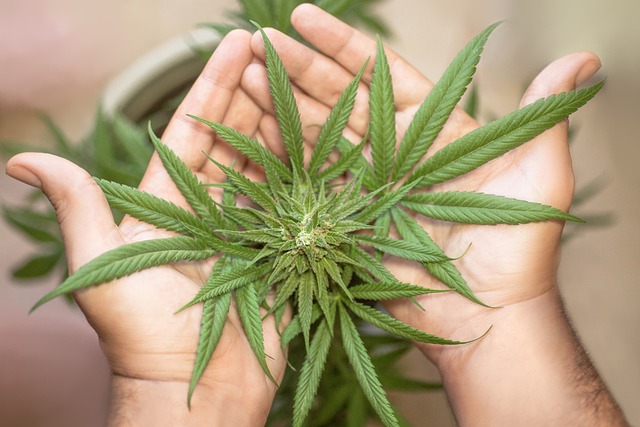
delta-9-tetrahydrocannabinolic acid (THCA) flower, a non-psychoactive cannabinoid found in the Cannabis sativa plant, has garnered attention for its potential benefits on cognitive function and mental clarity. Advocates suggest that THCA interacts with the body’s endocannabinoid system, which regulates a range of functions and processes, including those influencing mental acuity. Initial studies indicate that THCA flower may help in sharpening focus and enhancing concentration, attributes that are beneficial for tasks requiring deep cognitive engagement. Its effects are believed to be mediated through the CB1 and CB2 receptors, which play a significant role in mood regulation and neuroprotection. Users reporting an uplift in mental clarity often attribute this to THCA’s ability to stimulate the brain’s higher-level functions without the psychoactive effects associated with its decarboxylated form, THC. As research continues to evolve, the use of THCA flower for mental clarity is gaining traction among individuals seeking natural supplements to support their cognitive well-being. Users are encouraged to explore this compound responsibly and in compliance with local laws and regulations.
The Science Behind THCA Flower and Its Cognitive Benefits

Delta-9-tetrahydrocannabinol (THC) is the well-known psychoactive component of cannabis, but tetrahydrocannabinolic acid (THCA), its precursor, has been gaining attention for its potential benefits. THCA is the raw form of THC found in raw cannabis plants and flowers before heat or light degrades it into THC. Studies suggest that THCA interacts with the body’s endocannabinoid system, which plays a significant role in regulating various physiological processes including mood, appetite, pain sensation, and memory. Research indicates that THCA may offer cognitive benefits such as improved mental clarity and focus without the psychoactive effects typically associated with THC. This is particularly intriguing for individuals seeking the therapeutic potential of cannabis without impairment. Preclinical studies have demonstrated that THCA can protect neurons, potentially offering neuroprotective properties. Its interaction with the CB1 receptor has been linked to anti-inflammatory effects and could play a role in reducing anxiety and improving overall cognitive function. Users reporting anecdotal experiences with THCA flower for mental clarity often note its ability to enhance concentration and promote a clear, focused state of mind, making it a subject of growing interest in both scientific research and personal wellness practices. As the understanding of THCA’s effects expands, so does the exploration of its potential cognitive benefits.
Potential Side Effects of THCA Flower Consumption
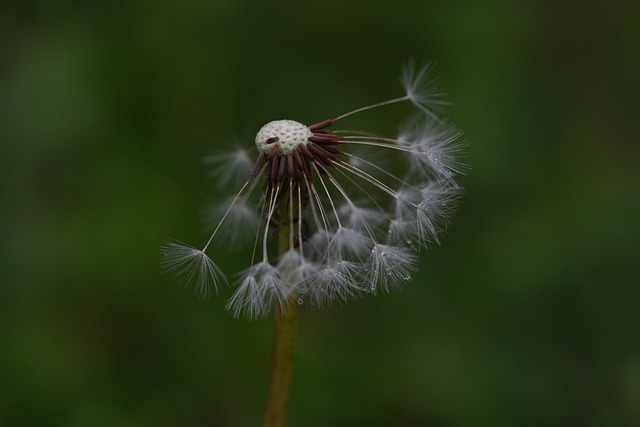
THCA flower, which contains Tetrahydrocannabinolic Acid, a non-psychoactive precursor to THC, is increasingly being recognized for its potential benefits on mental clarity. While research on THCA is ongoing, anecdotal reports and early studies suggest that it may offer cognitive enhancing properties without the psychoactive effects associated with THC. However, as with any substance, there are potential side effects associated with THCA flower consumption. Users may experience mild to moderate side effects such as dry mouth, reddening of the eyes, and a temporary decrease in blood pressure, which can lead to dizziness or lightheadedness. These effects are typically mild and short-lived, often subsiding as the user becomes more accustomed to the substance.
It is important for consumers to approach THCA flower with caution, especially if they have pre-existing health conditions or are taking other medications. Some individuals may experience more pronounced side effects, including anxiety or paranoia, particularly at higher doses. Additionally, while THCA itself is non-psychoactive, the psychoactive effects of THC can emerge if the THCA is exposed to heat and combusts. Therefore, users must be informed about the proper handling and consumption methods to avoid unintended psychoactive outcomes. As with any supplement or medication, individual reactions can vary greatly, and it is advisable to consult with a healthcare provider before incorporating THCA flower into one’s wellness regimen, particularly if seeking its benefits for mental clarity.
Understanding the Dosage and Tolerance for THCA Flower Use
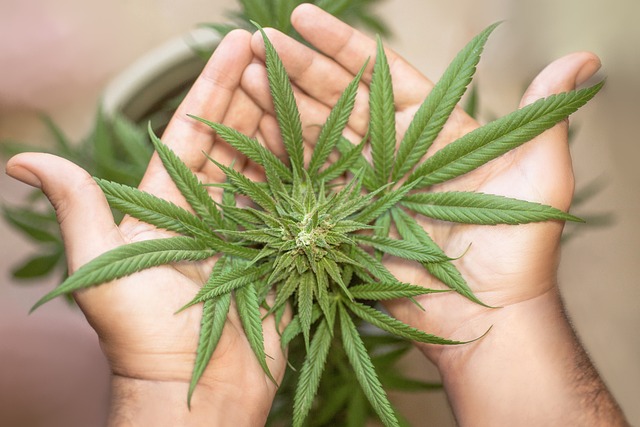
When exploring the potential benefits of THCA flower, which is the raw form of tetrahydrocannabinolic acid, understanding dosage and individual tolerance is paramount. THCA flower is often praised for its cognitive-enhancing properties, including its ability to promote mental clarity without the psychoactive effects associated with its decarboxylated form, THC. As with any substance, the appropriate dosage can vary significantly from one individual to another, influenced by factors such as body weight, metabolism, and personal sensitivity. It is advisable for users to start with a low dose of THCA flower to gauge their reaction. This initial dose should be observed over time to determine any effects on mood, focus, or mental acuity. Gradual increases can then be made incrementally, allowing the user to pinpoint their optimal dosage range for achieving desired mental clarity without overwhelming their system.
Tolerance to THCA flower also develops over time with consistent use. Regular users may find that their body adapts to the compound, potentially requiring a higher dose to achieve the same level of focus and clarity as when they first began using it. It is important for consumers to listen to their bodies and adjust their usage accordingly. Consulting with a healthcare provider or a knowledgeable cannabis specialist can also provide personalized guidance on dosage and tolerance, ensuring safe and effective use of THCA flower for mental clarity. Additionally, it’s crucial to be aware that while anecdotal evidence suggests THCA flower has minimal psychoactive effects, individual experiences may vary, and potential side effects should be considered and understood before use.
Factors Influencing Individual Responses to THCA Flower
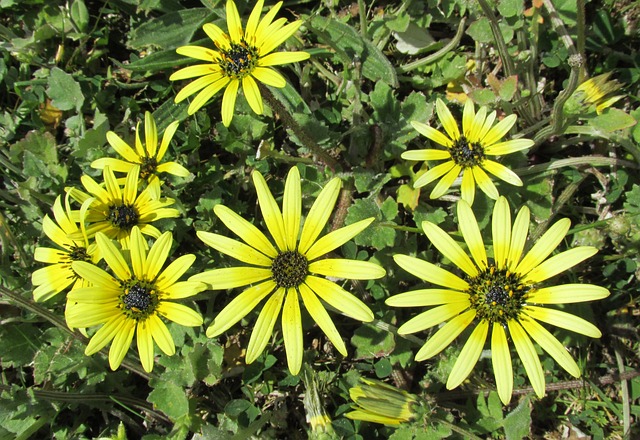
The effects of THCA flower, a non-psychoactive cannabinoid found in hemp and cannabis plants, on mental clarity can vary significantly among individuals due to a multitude of factors. Genetic predisposition plays a crucial role; certain genetic variations can influence how an individual’s body processes and responds to THCA. Additionally, the endocannabinoid system’s unique interaction with THCA in each person can lead to different experiences regarding mental clarity. Factors such as dosage, method of consumption, and the specific strain of THCA flower also contribute to these individual differences. For instance, a lower dosage may promote focus and mental acuity in some, whereas higher doses might induce relaxation or drowsiness in others. The route of administration—whether it’s inhaled or ingested—can alter the onset and duration of effects, further personalizing the experience. Environmental factors, including stress levels and surrounding distractions, can also impact the efficacy of THCA flower for mental clarity. Understanding these variables is essential for consumers to tailor their usage to achieve the desired cognitive benefits, emphasizing the importance of individual experimentation and consulting with healthcare professionals when incorporating THCA flower into one’s wellness routine.
Mitigating Side Effects: Best Practices for Safe THCA Flower Use
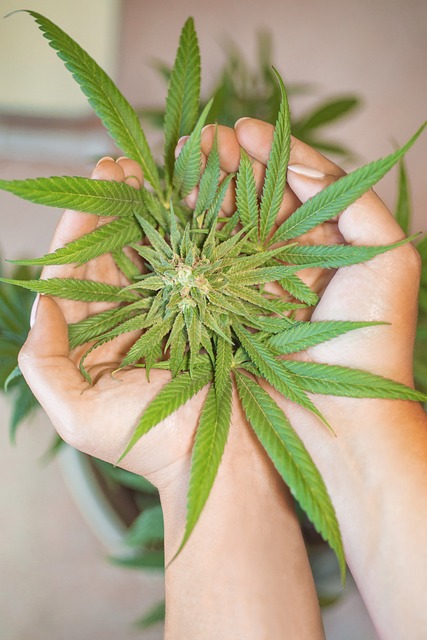
When incorporating THCA flower into one’s routine for enhanced mental clarity, it is imperative to approach its use with caution and knowledge. The effects of THCA can vary significantly from person to person, and understanding how your body may react is crucial for a safe experience. To mitigate potential side effects, begin by adhering to modest dosages and observing how you respond. It is often recommended to start with a small amount and wait for its effects to be fully realized before considering an increase in dosage. This approach allows for better control over the experience and can prevent overwhelming your system.
Additionally, the method of consumption plays a significant role in the intensity and duration of THCA’s effects. Inhalation methods like vaporizing or smoking can provide quick onset but may also lead to more pronounced side effects if not used judiciously. Conversely, ingesting THCA through edibles can offer a slower onset with a potentially longer-lasting effect, which might be more manageable for some individuals. Regardless of the consumption method chosen, it is wise to maintain a well-ventilated environment, as proper ventilation can reduce airborne exposure and minimize the impact of secondhand THCA flower smoke or vapor.
Furthermore, individual tolerance levels can differ greatly, so it is essential to listen to your body and adjust usage accordingly. Factors such as body chemistry, metabolism, and personal sensitivity all contribute to how one might experience the effects of THCA. Consistent use can gradually increase tolerance, potentially reducing the intensity of side effects over time. It is also advisable to remain hydrated and nourished, as this can help manage any adverse reactions that may arise.
Incorporating THCA flower for mental clarity should be paired with a responsible and well-informed usage strategy. Regularly consulting with healthcare professionals and staying informed about the latest research on THCA can provide valuable insights into best practices for safe use. By prioritizing personal safety and adhering to recommended guidelines, users can maximize the benefits of THCA flower while minimizing any negative side effects.
In conclusion, THCA flower has shown promise as a natural aid for enhancing mental clarity, with scientific backing that supports its cognitive benefits. While it offers potential advantages, users should be cognizant of the side effects associated with its consumption, which can include mild to moderate reactions such as dizziness or dry mouth. These effects are typically mitigated by adhering to appropriate dosage and recognizing individual tolerance levels. It’s crucial to consider personal factors like metabolism, body chemistry, and previous experiences with cannabinoids when using THCA flower, as these can influence one’s response. By understanding and responsibly applying the best practices for safe use, individuals can fully appreciate the mental clarity benefits of THCA flower while minimizing any adverse effects. For those interested in incorporating THCA flower into their wellness routine, a cautious and informed approach is key to reaping its full potential positively.

